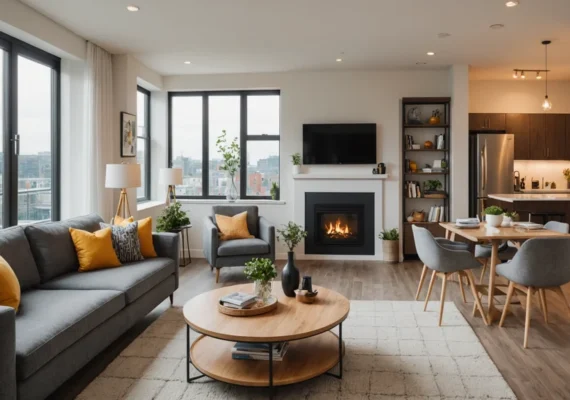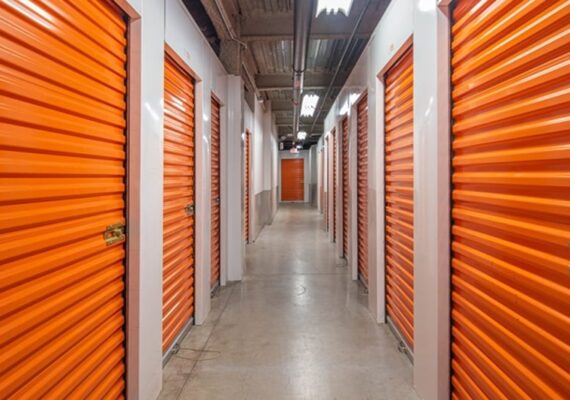Written by Dawn M. Smith exclusively for Military Crashpad®
Military members know all too well the challenges of renting a home. The research, the unpacking, and redecorating are all part of the PCS package. But when the dust settles, are your belongings protected? No one can predict a disaster or burglary but buying a renters insurance policy secures many of the items that make your rental house a home—even when you’re traveling.
Since the years of the Great Recession, the renting population has steadily increased. This includes those in the military who don’t think it advantageous to buy a property where they are stationed or find the current real estate market inventory too tight to afford a home.
What this means is that there are plenty of insurance providers to shop and compare and prices, because for about $20 a month, the entire inventory of your house can be secured.
Why Do You Need Renters Insurance?
The answer is easy. Can you replace all of the contents of your home if they were all destroyed tomorrow? Probably not. This is why renters insurance is necessary.
- There is a misunderstanding out there that suggests homeowners insurance will cover the tenant’s losses. Not true, unless the homeowners are found negligent, which is a tough claim to prove. Their policy likely preserves the structure only. Wise landlords insist their tenants own renters insurance and include a clause in the lease.
- Even if you live in base housing, your items aren’t insured. Since the privatization of the industry, each housing company handles insurance differently, but it’s safe to assume you’re on your own to provide renters insurance.
- Renters insurance also protects your valuables outside of the house. Lost items in a taxi, stolen from a hotel room, or forgotten on a plane are all circumstances where the insurance can help.
- From a lawsuit perspective, a renters insurance policy with liability alleviates the pressure to defend yourself in court from someone suing your for a dog bite or a fall over a mountain of Legos.
Before you begin to shop for renters insurance, familiarize yourself with these terms, you’ll see them in every policy.
Deductible. This is the amount of money the policy owner is required to pay in damages before the insurance company will pay for the rest. For example, if your policy has a $250 deductible, and burglary results in a loss of $5,000 worth of property, you must pay the $250 before the company pays the remaining $4750. Be aware, the lower the amount of the deductible, normally equates to the higher cost of the policy.
Actual Cash Value (ACV). This Is a type of renters insurance that issues a payment for damages that is calculated with a deduction for depreciation for your items. For example, your TV that was purchased in 2010 will have lost value by 2018. An ACV policy will only pay what the insurance company decides the current value to be.
Replacement Cost Value (RCV). In contrast to ACV, RCV renters insurance pays the owner for what it would cost to buy a similar TV today. RCV is more expensive than ACV, but the additional coverage easily positions you to overcome a disaster.
Liability Insurance. This portion of renters insurance protects the owner against lawsuits from bodily injury or property damage done to someone else. Liability insurance defends you, your family, and sometimes pets in court. The liability amount is limited to your policy designations. The Insurance Information Institute recommends having no fault medical coverage as part of the liability insurance. This is to prepare against someone who is hurt and wants to make a claim. Instead of proceeding with a lawsuit, the person contacts the insurance company for their bills to be paid.
Additional Living Expenses. ALE are the costs associated with the disruption to your normal life because you’ve had to leave your rental home due to a designated disaster, like a fire. ALE pays for hotel bills, temporary rental houses, and food. In general, ALE pays for the expenses you’ll face while living away from home.
Floater. A floater policy is available for additional security against loss and theft. Those who own big ticket items like jewelry and collectibles should consider a floater.
What to Look for in Your Policy
There are dozens of companies that offer renters insurance and the rates vary. It’s important to investigate the coverage that means something to you, as a military member; like insurance while in transit or storage, and even the safeguard of a car while it is shipped. Some disasters like earthquakes and floods are not insured by the majority of companies.
You’ll have to assess the contents of your home to accurately calculate the amount of renters insurance you’ll need. For a base estimate, consider this— the average two-bedroom rental has more than $20,000 in personal possessions. The Insurance Information Institute has several recommendations for gathering the information you need before buying renters insurance.
Because so many servicemembers utilize the services of a USAA, here’s a quick peek of what they offer under renters insurance and the 17 causes of loss outlined in their policy
Clothing, Electronics, Silverware, Phones, Military Equipment, Jewelry, Storage, Fine Art, Bicycles, Sports Equipment, Cameras Liability, Coins, China/Crystal, Music Equipment, Guns, Furniture, Stamps, Antiques, Computers, Appliances, Furs, Hearing Aids
- Fire and lightning
- Flood and Water
- Windstorm or hail
- Collapse of building
- Volcanic eruption
- Earthquake
- Smoke
- Freezing
- Falling objects
- Explosion
- Theft
- Aircraft
- Vehicles
- Vandalism and malicious mischief
- Riot and civil commotion
- Sudden and accidental tearing apart, cracking, burning or bulging
- Sudden and accidental damage from artificially generated electrical current
The wellbeing and safety of our guests are important to the people at Military Crashpad. This is why the network of homes have rooms that are equipped with their own keypad lock for privacy and security. We also recognize the importance of renters insurance. Guests must own and maintain renters insurance during the entire duration of their stay.







